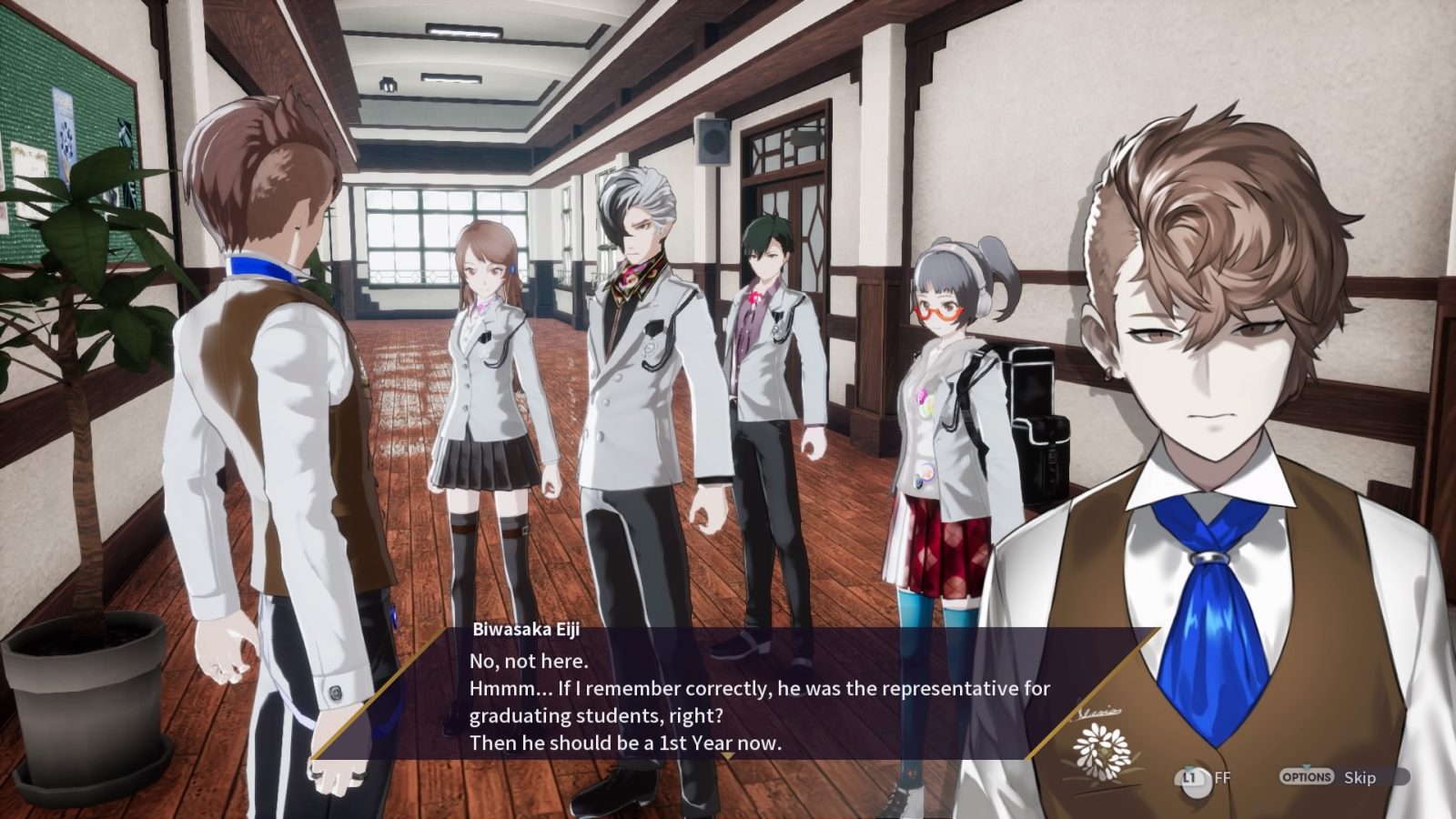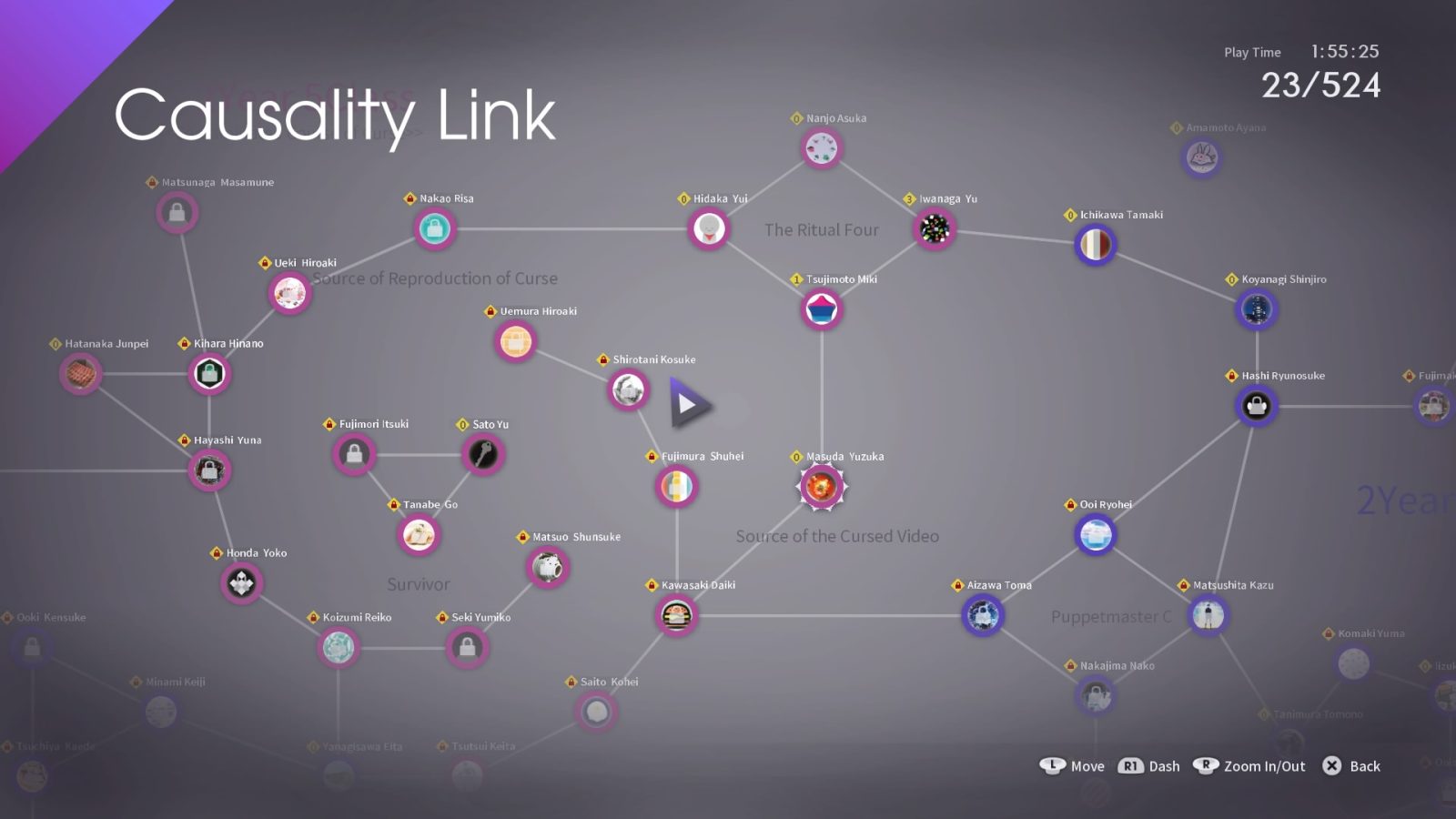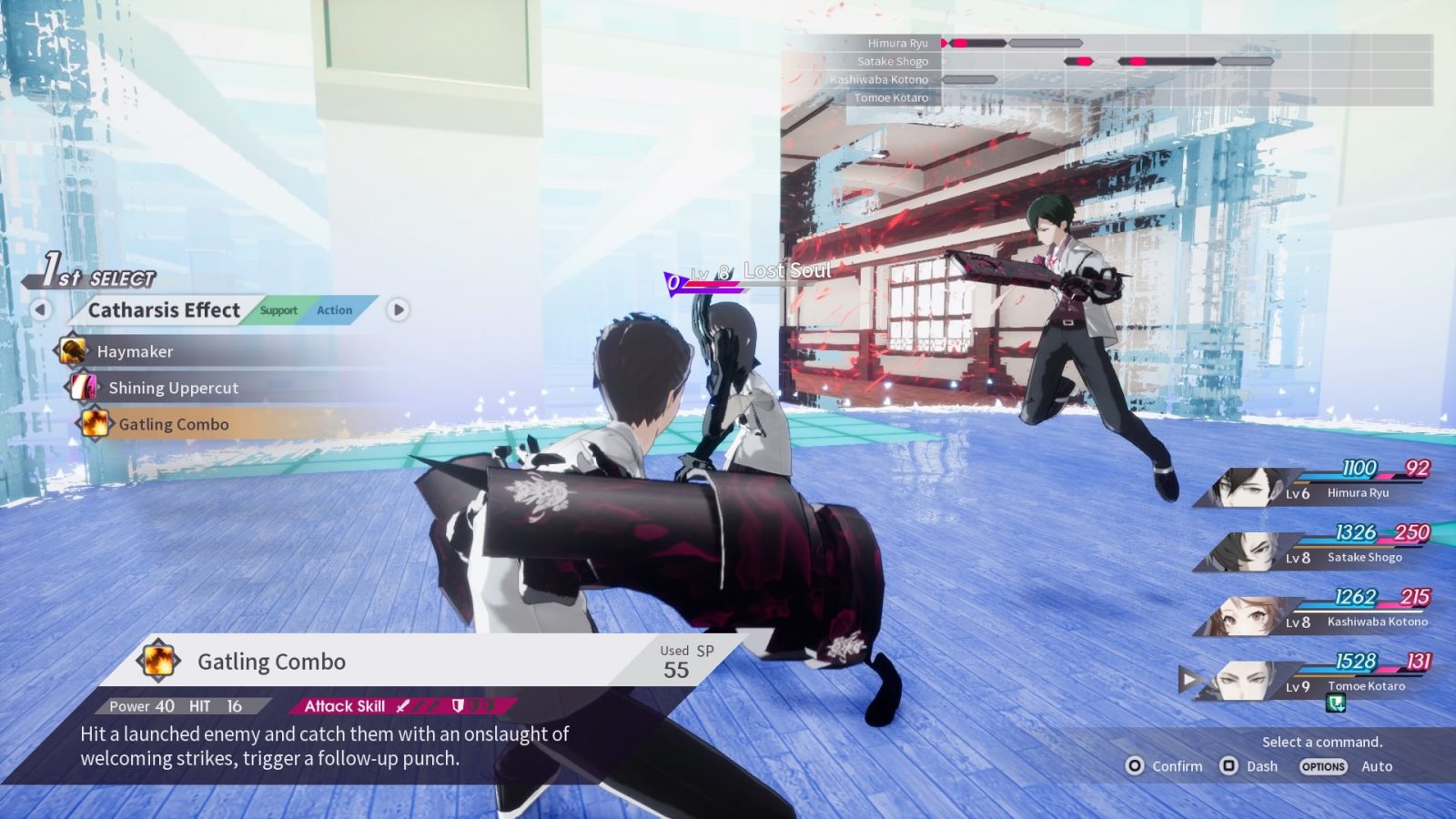Everyone knows the powerhouse character-driven JRPGs Persona and the Shin Megami Tensei series, but have you ever heard of The Caligula Effect: Overdose? The FuRyu developed game sets an interesting premise along with a wide cast of diverse characters to present an experience that attempts to reach the heights of its inspirations. The Caligula Effect: Overdose originally released back in 2019 on PC, PS4, and Nintendo Switch but is now getting a Western native PS5 version in 2023! Sadly it is yet another lazy port being re-released at full price with a lack of an upgrade path or a save transfer. But how’s the actual game itself? Let’s find out.
You don’t get much of an introduction to the premise of the narrative before you’re dropped straight into the thick of it. The Caligula Effect is set in a virtual simulation, a metaverse of sorts, named Mobius that was built by 2 virtual pop stars named μ and Aria. Mobius serves as an escape from suffering in the real world, but now μ is preventing people from returning back to reality, and thus two opposing factions are born. You play as a nameless protagonist, assisted by Aria, leading what is known as the Go-Home Club, whose members want to, you guessed it: go home. Those who wish to reside in Mobius permanently and the supporters of μ are known as the Ostinato Musicians. In this simulated world, you are able to materialize your trauma as weapons, thus resulting in characters wielding various guns and swords. It’s a bit silly, but I appreciate that the game tackles some extremely dark themes such as mental illness and social anxiety.

The combat system here is one of the highlights of Overdose, as it puts an emphasis on planning and thinking ahead to set up a sequence with all your party members. Your party consists of four characters, the main protagonist along with three other classmates, and battle plays out in a turn based fashion. You can chain up to three attacks each turn, and you can even see how these moves might play out before you commit to them. This unique twist on traditional turn based combat is refreshing and allows for unparalleled experimentation and strategizing. You won’t truly take advantage of this on the easier difficulties as battles are simply way too straightforward, so I recommend you play on hard mode if you are looking for a bit of a challenge. Unfortunately there isn’t much enemy variety, as the game recycles the same low-level grunt mobs endlessly, and random battle encounters occur far too often.
A unique gameplay mechanic implemented here is the causality link system, which you can sort of compare to social links from the Persona games. Overdose boasts a lofty 500 students you can interact and form bonds with through optional side quests. It sounds impressive on paper, but the whole system ends up being extremely flawed by design. You must talk to each student 3 times before forming a bond with them, and the forced shared conversational dialogue is shallow and boring, and simply ends up being a button mash just to skip through them. The subsequent missions you take on after forming friendships with these students are just as tedious and unimaginative, as they mostly end up being: defeating a certain number of enemies or fetching an item. What’s worse is that you are required to play through these, as this is the only way for you to unlock certain passive abilities. It’s a complete slog.

Given that this is simply a re-release of a game that came out many years ago, the graphics aren’t anything to write home about. The visuals are mostly bland and unappealing, with most characters looking extremely generic and static. Many of the environments are simply copy-pasted assets put together, which gets nauseating after a while. Dungeon design is abysmal, and you can easily get lost in one given how similar everything looks. Don’t get me wrong though because the art direction on the other hand is phenomenal. The blooming and vibrant colors perfectly encapsulate the themes presented in the narrative. What can seem so cheerful and bright in the virtual world of Mobius is actually something much more sinister and dark in reality. The game also features a few pre-rendered fully animated cutscenes that are a nice touch to the overall artistic experience.
Overdose is a remake of the original The Caligula Effect, which came out back in 2016 exclusively for the PlayStation Vita. Several new characters have been added, including a playable female protagonist along with multiple students belonging to the Go-Home Club and Ostinato Musicians. This remake also includes a brand new route called the “Forbidden Musician Route”, which allows you to become a double agent between the two aforementioned factions. Aside from narrative enhancements, Overdose also implements a revamped UI and several quality of life tweaks such as the ability to re-fight boss battles and simplified social links between characters. You can see Overdose as the definitive version of The Caligula Effect, like Persona 5 Royal is to Persona 5.

However, this native PS5 port of Overdose adds absolutely nothing new compared to the previous release, other than slightly upscaled graphics and faster loading times. Character animations are a bit smoother and environmental details are a bit crisper, but that’s about it. Like all the other NIS America PS5 ports, this one doesn’t include an upgrade path, let alone a free one, from the PlayStation 4 version. Save data does not transfer over either, so you essentially need to start over from scratch if you played the game before and decide to purchase this version. It should be noted that the original game only features Japanese voiceovers, and it felt like a missed opportunity to implement an English dub for this second re-release.
There’s little to no reason to purchase and play through this rehashed version of the game if you already own it. I see no real justification to spend $50 for this “new” PlayStation 5 native version of this game, unless you are a diehard fan or want to work through another platinum trophy. The PS4 version, which plays and performs just as well, is discounted to a fair price of $20. The developers could have at least included all the cosmetic DLC in this re-release, but it seems like that’s asking for too much! Those who purchase the physical edition do receive an exclusive set of art cards at no extra cost, which I guess is pretty neat.

















